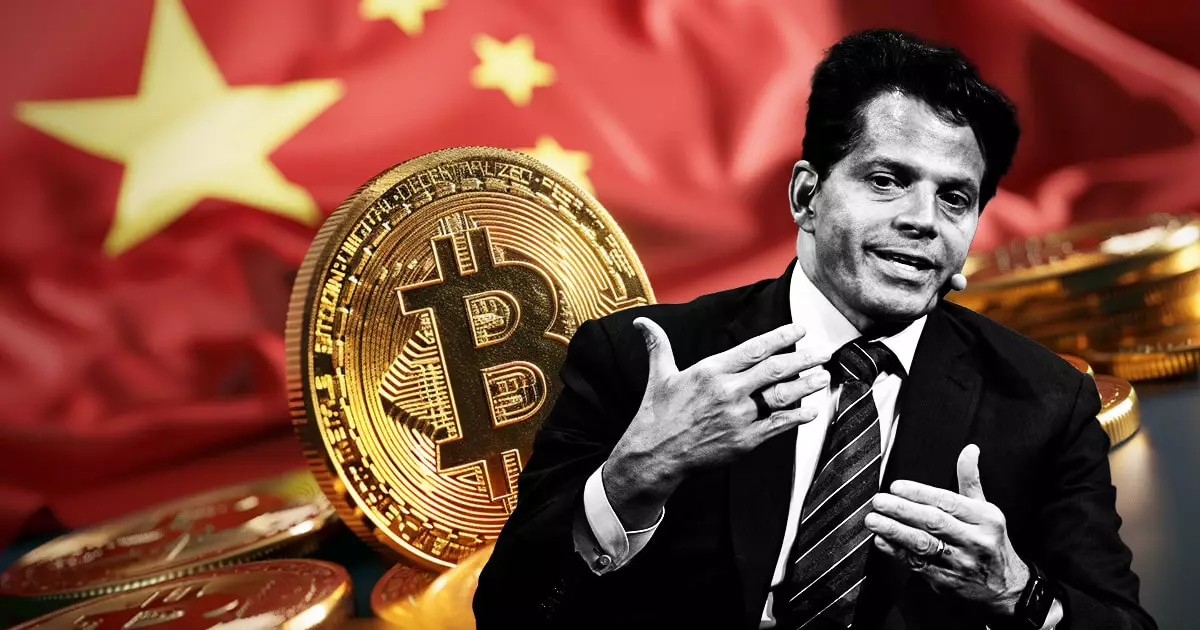As the cryptocurrency landscape continues to evolve, the recent comments by Anthony Scaramucci at the Bitcoin MENA 2024 conference provide intriguing insights into the future of Bitcoin on a global scale. Scaramucci indicated that China is likely to reestablish its Bitcoin mining operations and consider integrating Bitcoin into its reserve assets. This proclamation arrives at an opportune moment when the United States seems more welcoming toward Bitcoin, raising questions about the dynamics of international financial policies and the strategic alignment of nations around digital assets.
Scaramucci’s analysis reflects a noteworthy shift in the perception of Bitcoin: it is moving away from being viewed solely as a speculative investment to being recognized as a viable strategic asset. This transition is underscored by a growing interest among nations eager to incorporate digital currencies into their financial portfolios for diversification and resilience against geopolitical risks.
Global Responses to Bitcoin’s Strategic Appeal
Countries across the globe are exploring methods to integrate Bitcoin into their financial frameworks, each demonstrating unique motivations for doing so. For instance, a Russian lawmaker’s proposal for a national Bitcoin reserve highlights an effort to bolster economic stability in light of international sanctions. Similarly, Brazil has made headlines with initiatives to allocate significant portions of its reserves to Bitcoin, with a proposal to invest up to $18.6 billion indicating a serious commitment to cryptocurrency as a means of financial resilience.
In the United States, the evolution of Bitcoin policy is notable, particularly in light of government discussions on formalizing Bitcoin reserves. Legislative initiatives, such as Senator Cynthia Lummis’s effort to secure substantial holdings of Bitcoin over the coming years, signal a long-term perspective rather than mere speculative interest. This trend is echoed by U.S. states like Pennsylvania that are considering Bitcoin allocations, reinforcing the notion that institutional and governmental interest in cryptocurrency is gaining traction.
Scaramucci posits that China could soon reintegrate Bitcoin into its strategic considerations, a perspective that suggests significant geopolitical ramifications. If China, a nation that previously suppressed Bitcoin mining and trading, decides to embrace this digital currency again, it could shift the balance of power in the global cryptocurrency market. For many, this feared return to Bitcoin would signify the acknowledgment of the asset’s strategic importance, encouraging other nations to follow suit.
The idea of integrating Bitcoin into national reserves is not without its challengers. Critics often point to the volatility of cryptocurrencies and the risks they pose to economic stability. These concerns highlight a fundamental tension: while Bitcoin carries the allure of financial independence and a hedge against inflation, its unpredictable nature raises questions about the impact on taxpayers and the broader economy. Such disparities are essential to consider in any discussion about national reserve policies concerning Bitcoin.
Despite skepticism, advocates for strategic Bitcoin reserves argue that nations exploring this avenue could potentially reap various benefits. The Bitcoin Policy Institute has emphasized the prospective financial stability gains and the opportunity for enhanced leadership in global finance that could arise from adopting Bitcoin as an asset. These advocates argue that countries recognizing Bitcoin’s utility may gain leverage in the evolving financial landscape, positioning themselves favorably as the world pivots toward digital currencies.
This situation is further complicated by the ongoing developments around the 2024 Bitcoin halving event and the U.S. presidential election. Historical patterns suggest that Bitcoin’s market strength often increases following such events, indicating that timing and political landscapes converge in ways that could dramatically influence the crypto economy.
The potential return of China to the Bitcoin mining arena and the integration of Bitcoin into national reserves highlight a crucial dynamic in the evolving landscape of cryptocurrency. As nations reassess their financial strategies, the ramifications could redefine the role of Bitcoin in global finance. Whether as a hedge against economic fragility or a tool for enhancing national security, the future of Bitcoin seems intertwined with geopolitical developments and the strategic interests of governments worldwide. The coming months will indeed be pivotal in determining how Bitcoin solidifies its position as an asset class deserving of serious consideration at the national level, ultimately deepening its integration into the fabric of international financial systems.

